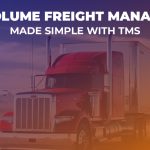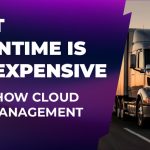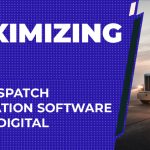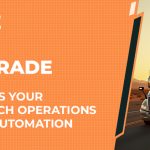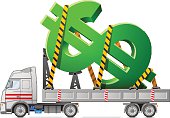
Showing a profit is a priority for any business owner. You need to surround yourself with great people, great equipment, and great software! And, of course, always have a plan.
We, at TMS Digital, certainly understand and we can help you with the great software. In addition, I will share some great tips, further down.
We have been in the trucking software business for over 35 years. Our products are top of the line and highly configurable to your specific needs. Easy to use and priced fairly! We do not believe in price gouging.
Our programs are modular, so you can purchase what you need, be it our Dispatch program, which is highly configurable with customizable screens, menu options, security, screen colors based on alerts you specify, and more. It has built in Billing and Settlement options and we can interface with many different accounting packages, including QuickBooks and Microsoft Dynamics (Great Plains). Our dispatch program also integrates with several choices of mileage programs, like Google miles, PcMiler, Rand McNally or Prophesy.
Do you need an EDI interface? Dispatch allows for EDI integration, whether it is importing loads (204s), electronic billing (210s) or load updates (214s).
Fuel Card program
Our Fuel Card program is included with Dispatch and offers integration with many fuel card companies, such as Comdata, EFS, TCH, just to name a few. This allows you to pull in fuel purchases and cash advances when doing payroll. All your data is there, automatically! In addition, with our accounting interfaces, mentioned above, we do the setup so all the correct General Ledger account numbers are debited and credited correctly. We even can set you up to do “conditional” accounting where Revenue accounts are based on specific conditions, for example, was this revenue generated by hauling charge, or Fuel Surcharge, or did we bill our client for Detention? We even can break out your revenue by dispatcher, terminal or truck. Settlements works the same way, where your expenses are distributed to the correct GL accounts. And, yes, we can do some wild and crazy pay formulas for you!
Our IFTA Manager program also makes your tax reporting much easier. We import data from your truck’s ELD and from your Fuel card purchases. We “marry” them together to create a trip based, on the truck number and the date range. Currently we interface with OmniTracs, Samsara, Geo Tab, Keep Truckin’ and more! Interfaces are being added all the time. Moreover, as mentioned above with our Fuel Card program, we can import fuel from many sources, including your yard fuel as a csv file or Excel.
Our software helps you keep your equipment profitable. Our Dispatch program allows you to keep track of several standard maintenance items, but if you want the complete package, and especially if you have your own shop, then our Maintenance program is for you! Detailed tracking of your equipment repairs, including those done while on the road, along with fuel and oil usage not only improve your profitability but also equipment safety and compliance. Interfacing with your accounting package allows you to easily keep track of sales to your customers. Whether you do the work on your own trucks, outsource it, or do work for other folks, our Equipment Maintenance program keeps you organized!
We have other program modules, too! Our Tickets program, great for short haul/dump truck trucking is easy to use and also interfaces with multiple accounting packages. Then, there is our Driver Safety program, which is one of the most organized systems you will find, for tracking your driver’s drug tests, physical and license expiration dates, tickets and accidents, and so much more.
You can purchase the modules as standalone or you can get the whole Transportation Management System Suite. Just hit the “contact us” button on our website and we would love to demo for you, what we offer.
Now for the other tips I promised you.
5 ways in which Fleet Managers can reduce operational costs
This article is from CCJ Digital. The following is condensed for space, but will include the link to the full article at the end.
Bryan Christiansen, contributor
Aug 15, 2021
Updated Aug 16, 2021
Reduce fleet size
This should be your first port of call if you need to cut down on operating costs. After all, each additional vehicle adds thousands of dollars in total ownership costs each year, according to KPMG. Downsizing by even a few older models has the potential to attract big savings in terms of mileage, maintenance and driver expenses.
Exercise control over the distance covered
In the past, fleet managers did not have direct visibility over daily fleet operations data. You could not keep track of every mile covered by all the vehicles in your fleet. This often encouraged a tendency to use company vehicles for non-essential or personal purposes.
Improve fuel consumption and emissions
With fuel costs accounting for the lion’s share of operating costs for many fleets, this step may seem like a no-brainer. However, if you are looking for quick results, fuel usage is not the best candidate for change. There are many options in this area – switch to “greener” fuels, more efficient hybrid engines, lighter vehicles, and so on. But they all require an initial investment, which may not be forthcoming in the present economic situation.
Use CMMS for efficient maintenance
Maintenance is a vital function that has a value multiplier effect on your fleet – it improves productivity, reduces accident risk, and increases the longevity/resale value of vehicles. It is also an incredibly complex task, with huge potential for waste and inefficiency.
Improve vehicle resale value
With smarter, CMMS-empowered maintenance schedules, fleet managers can achieve a secondary benefit in the form of higher resale value vehicles. This metric is vital as it has a direct bearing on the TCO of a vehicle.
To read the full article, click here.
